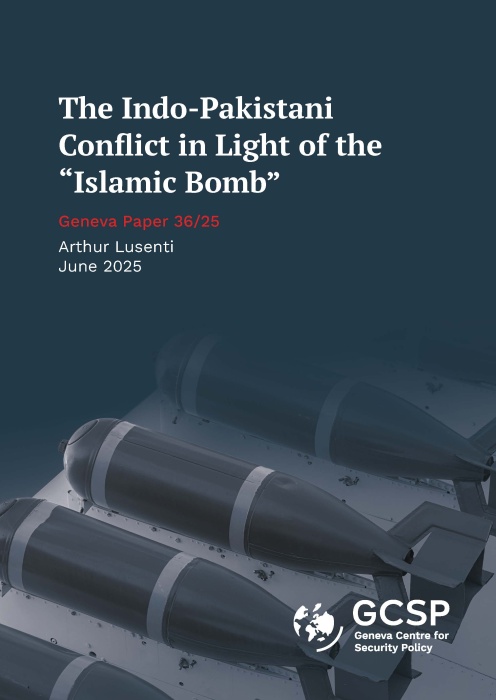The Indo-Pakistani Conflict in Light of the “Islamic Bomb”
Executive summary
The ongoing tensions between India and Pakistan date back to 1947, when both nations gained independence from British rule. Subsequent discord and enmity, manifesting in the cultural, political, ideological, and diplomatic spheres – and on occasions escalating to a state of (limited) military confrontation – have rendered the resolution of these tensions impracticable.
The conflict underwent a significant shift in 1998 with Pakistan’s first test of a nuclear bomb, a development that followed India’s acquisition of its nuclear capability in 1974. After this, the nuclear dyad that emerged transformed a latent regional conflict into a potential hotspot of global relevance, with the potential for nuclear Armageddon.
It is evident that if Pakistan’s use of its nuclear capability as a tool to deter India has been effective in terms of the exercise of “hard power”, Pakistan has also employed its nuclear programme and capability as a “soft power” instrument of statecraft. This capability enabled Islamabad to punch above its weight on the global stage, seeking to unify the world Muslim community around its so-called “Islamic bomb” and by engaging more proactively through multilateral channels such as the Organisation of Islamic Cooperation and the United Nations.
This Geneva Paper aims to provide a historical perspective on the episodic escalations (and thus far the subsequent de-escalations) of tensions between India and Pakistan. In order to achieve this objective, the nuclear dimension of the conflict is analysed. It has been widely demonstrated that a variety of uses underpin nuclear capabilities, thus explaining why some states, despite the enormous costs involved, embrace the nuclear path. This also sheds light on how and why nuclear adversaries can step back from the brink of nuclear war.
Disclaimer: The views, information and opinions expressed in this publication are the author’s own and do not necessarily reflect those of the GCSP or the members of its Foundation Council. The GCSP is not responsible for the accuracy of the information.


